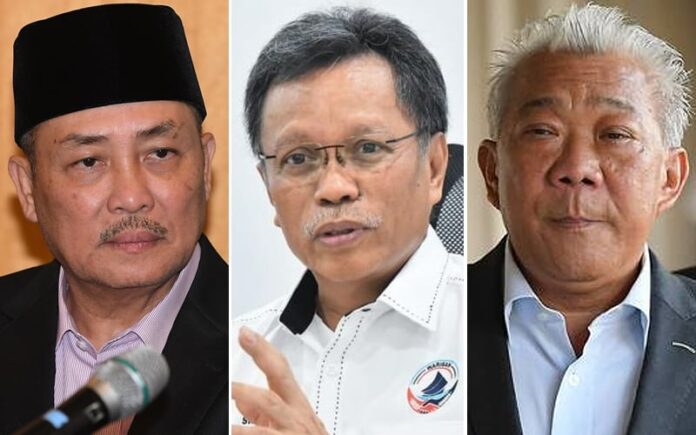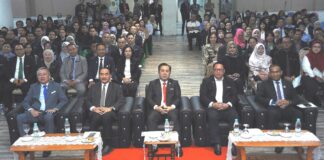KOTA KINABALU: The latest glowing piece praising Chief Minister Datuk Seri Hajiji Noor and predicting a “certain” GRS victory in the coming Sabah state election reads more like a paid advertisement than political analysis.
Its narrative of “overwhelming support” and “unmatched credibility” collapses quickly when confronted with hard realities on the ground.
Let’s separate the spin from the truth.
1. ‘Unprecedented Enthusiasm’ — Or Manufactured Optics?
The so-called “enthusiasm” on the ground often comes from choreographed events where government machinery, state funds, and civil servants are mobilised to project mass support.
Every politician can fill a hall when allowances, food packets, or state contracts are involved. Genuine enthusiasm comes from progress — and that’s precisely what many Sabahans have not felt under Hajiji’s five years of rule.
If the Chief Minister truly commands spontaneous public confidence, why does GRS rely so heavily on pre-election handouts, state-funded “launches,” and government-linked NGOs to crowd events?
2. ‘Record of Delivery’ — Delivering What, Exactly?
The article boasts of a “record of delivery,” but where are the tangible results?
Power supply? Still plagued by blackouts despite taking over electricity regulation.
Water supply? Hundreds of villages remain dry, some relying on rainwater or lorries.
Jobs and industries? Youth unemployment remains stubbornly high.
Economic parity? Sabah remains Malaysia’s poorest state.
Let’s not confuse ribbon-cutting ceremonies with genuine economic transformation.
3. ‘RM6 Billion Revenue’ — A Mirage in the Desert
Hajiji’s team often touts the state’s “revenue growth” as proof of good governance. But even with RM6 billion in reserves, Sabah pales next to Sarawak’s RM45 billion — despite both states sharing similar natural resources.
That gap reflects not pride, but policy failure.
It shows that while Sarawak built fiscal independence through sound management and assertive negotiation, GRS has been content with photo opportunities and partial deals dressed as “autonomy.”
4. ‘Unity Under GRS’ — Or a Coalition Held by Convenience?
The claim that Hajiji’s leadership has “united Sabah” ignores glaring cracks within his own coalition.
Both STAR and SAPP — founding partners of GRS — have already left. That isn’t unity; it’s disintegration.
When a government must buy Assemblymen with positions and projects to maintain its majority, it signals not stability but corruption dressed as cohesion.
5. Legal Reforms Don’t Equal Progress
Listing 51 new enactments may sound impressive — but laws mean little without enforcement, transparency, and moral governance.
Sabah’s people don’t need more enactments; they need clean water, reliable electricity, better roads, and real wages.
A government that can amend the Constitution but cannot fix the basics has its priorities upside down.
6. The Real Test: Trust vs. Fear
The piece concludes that there is “no alternative to Hajiji.” That line alone reveals the biggest danger to Sabah’s democracy.
When power becomes so concentrated that alternatives are dismissed, it ceases to be democracy and becomes dependency.
Sabahans are wiser than political propagandists assume. The question in this election is not whether GRS can win — but whether Sabah can afford five more years of the same recycled promises, party-hopping culture, and cosmetic autonomy.
In short: Hajiji’s government has mastered public relations, not public service. Stability without progress is stagnation — and Sabah deserves better than slogans packaged as certainty.
Issued by: A Political Observer, Kota Kinabalu


